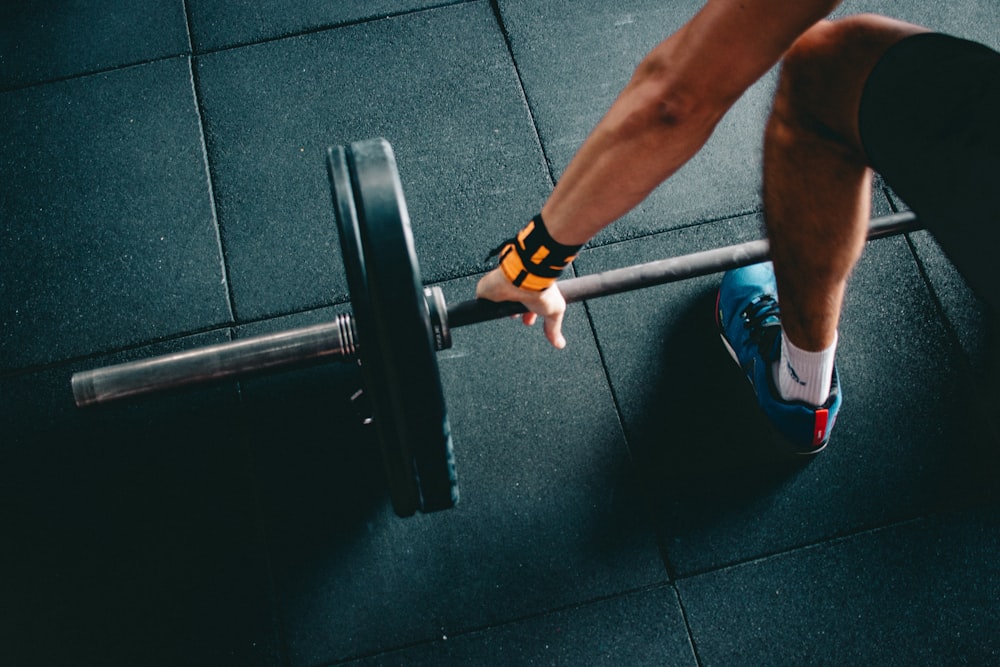目次
遠心性トレーニングも高頻度低負荷で効果が得られる?低頻度高負荷が必須?
筋力トレーニングを行う際に重要となるのが負荷量と頻度です.
近年の研究では高頻度低負荷のトレーニングでも筋力増強効果があることが多く報告されております.
しかしながら遠心性トレーニングの場合はどうなのでしょうか?
遠心性トレーニングってなんとなく高負荷のイメージがありますよね.
今回は遠心性トレーニングも高頻度低負荷で効果が得られるのかどうかを考えるうえで参考になる論文をご紹介させていただきます.

今回ご紹介する論文
Scand J Med Sci Sports. 2022 Jul 31. doi: 10.1111/sms.14220. Online ahead of print.
Greater effects by performing a small number of eccentric contractions daily than a larger number of them once a week
Riku Yoshida 1, Shigeru Sato 1 2, Kazuki Kasahara 3, Yuta Murakami 3, Fu Murakoshi 3, Kodai Aizawa 3, Ryoma Koizumi 3, Kazunori Nosaka 4, Masatoshi Nakamura 5
Affiliations expand
PMID: 35908200 DOI: 10.1111/sms.14220
今回ご紹介する論文は2022年に掲載された論文です.
研究の背景
Our previous study found that one maximal voluntary eccentric contraction (MVC-ECC) performed daily for 5 days a week for 4 weeks increased MVC-ECC, isometric (MVC-ISO), and concentric contraction (MVC-CON) torque of the elbow flexors more than 10%.
著者らは以前,1回の最大随意偏心収縮(MVC-ECC)を週5日,4週間毎日行うことによって,肘関節屈筋群の遠心性,等尺性,求心性トルクが10%以上増加することを明らかにしました.
研究の目的
The present study investigated the effects of six maximal voluntary eccentric contractions on the MVC torques and biceps brachii and brachialis muscle thickness (MT).
この研究では6回の最大随意遠心性収縮が,MVCトルクと上腕二頭筋および上腕筋の筋厚(MT)に及ぼす影響について明らかにすることを目的としております.
研究の方法
Thirty-six healthy young adults were placed to one of the three groups (N = 12 per group); the 6 × 1 group that performed one set of six contractions once a week, the 6 × 5 group that performed one set of six contractions a day for 5 days a week, and the 30 × 1 group that performed five sets of six contractions a day in a week. The training duration was 4 weeks for all groups, and changes in MVC-ECC, MVC-CON and MVC-ISO torque, and MT before and after the 4-week training were compared among the groups.
健常若年成人36例を週1回6回収縮を1セット行う6×1群,週5日6回収縮を1セット行う6×5群,週1回6回収縮を1日5セット行う30×1群の3群(各群N=12)に割り付けております.
トレーニング期間は全群4週間とし,4週間のトレーニング前後の遠心性,求心性,等尺性トルク,筋厚の変化を群間で比較しております.
研究の結果
The 6 × 1 group did not show significant changes in muscle strength and MT. Significant (p < 0.05) increases in MVC-ECC (13.5 ± 11.5%), MVC-ISO (9.3 ± 5.5%), MVC-CON torque (11.1 ± 7.4%) were evident for the 6 × 5 group only, and increases in MT were found for the 6 × 5 (10.4 ± 4.4%) and 30 × 1 (8.0 ± 5.8%) groups without a significant difference.
6×1群では筋力,筋厚に有意な変化は見られませんでした.
6×5群のみ遠心性(13.5±11.5%),等尺性(9.3±5.5%),求心性トルク(11.1±7.4%)に有意(p<0.05)な増加が見られ,6×5(10.4±4.4%)と30×1(8.0±5.8%)で有意差無く筋厚が増加することが確認されました.
研究の結論
These results suggest that performing a small number of eccentric contractions 5 days a week is more effective for increasing muscle strength than performing a larger volume of eccentric contractions once a week. However, it appears that training volume is a factor for muscle hypertrophy in a short-term training.
研究結果から週1回高負荷(多いトレーニング回数)の遠心性収縮を行うよりも,週5日低負荷(少ないトレーニング回数)の遠心性収縮を行う方が筋力増強に効果的であることが示唆されました.
しかしながら短期間のトレーニングでは,トレーニング量が筋肥大の要因となる傾向にありました.
今回は遠心性トレーニングも高頻度低負荷で効果が得られるのかどうかを考えるうえで参考になる論文をご紹介させていただきました.
少ない回数でも毎日という高頻度で伸張性収縮を用いた筋トレ行うことが効率的に筋力・筋量の増加につながることが示唆される結果ですね.
こういった結果を高齢者のリハビリテーションにそのまま当てはめるのは乱暴かもしれませんが,こういった結果を考えると365日体制でのリハビリテーションにも意味があるものと思われますね.






